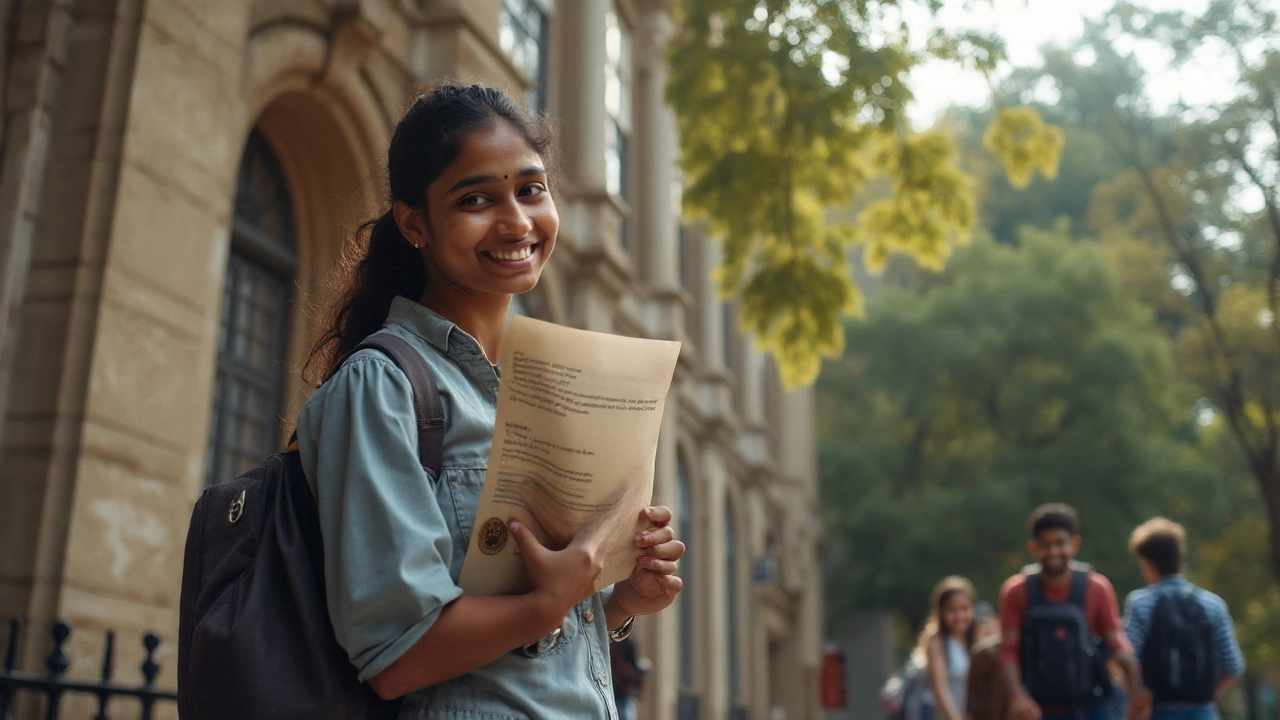You probably already know—the MCAT is a monster. But if Harvard Medical School is your dream, it’s a tall order. Every year, thousands of brilliant pre-meds try their luck at Harvard, but that invite only lands in a tiny handful of inboxes. The real kicker? Some people with sky-high MCATs still hear “no.” Let’s dig into what kind of MCAT score you actually need for Harvard, and what else comes into play.
How High Is High? Harvard’s MCAT Data
Harvard doesn’t play coy with its numbers. According to the Harvard Medical School Class Profile published in 2024, the median MCAT score for new admits was 522. To put that in perspective, the MCAT’s max is 528. The 10th percentile sat at 515, while the 90th percentile was a jaw-dropping 526. Translation: if you’re coming in under 515, your shot shrinks to near zero. The average accepted Harvard applicant crushed every section: Chem/Phys 130, CARS 129, Bio/Biochem 130, Psych/Soc 130.4.
That’s a lot of numbers. But here’s the real talk: scoring a 522 or above lands you in the competitive territory. If you’re below 520, Harvard’s not out of reach, but you need to bring something else to the table. As Dr. Robert Mayer, Faculty Associate Dean for Admissions, put it,
“Harvard looks for exceptional applicants, but it’s not just a number—there has to be a compelling story and real evidence you’ll contribute to the medical community.”So yes, your MCAT matters—a lot. Still, it’s a gate, not a guarantee.
How the MCAT Fits into Harvard Med’s Whole Picture
Test scores aren’t everything. Sure, crush your MCAT. But remember, over 80% of applicants to Harvard Medical School in 2024 scored above the 95th percentile on the test. Only around 3% got an offer. What gives? It’s all about context. Harvard wants folks who are more than test-taking machines. They want students who will change medicine.
Your MCAT’s like the golden ticket—it gets you to the door, but not always through it. Academic transcripts matter: nearly every accepted student showed rigorous science coursework, research experience, and killer grades (average GPA: 3.94!). But let’s talk about what Harvard really digs: unique life experiences. Think international volunteer work, first-in-family-to-college grit, or impactful research. Harvard’s holistic approach means essays, recommendation letters, and meaningful clinical exposure all matter.
They read your story. They want to know what drives you, how you bounce back from setbacks, and how you connect with others. A top MCAT shouts, “I can handle the academics.” Honing your story whispers, “I’ll be an inspiring, resilient doctor.”

Applying Strategy: MCAT Myths and Harvard Realities
There’s a weird myth out there that you have to be perfect at everything. Nonsense. You need a profile that fits Harvard’s vibe: smart, yes, but also imaginative, determined, collaborative, and humble. Don’t freak out if your MCAT is a 518 instead of a 523—if you’ve founded a clinic abroad, or published in Nature, you’re still in the game.
- Score Distribution: Don’t just obsess over the composite. Harvard looks for balance across all four sections. If your CARS dips below 127, aim to retake and balance it out if possible.
- First-Gen and Diversity: Harvard cares about background. In 2024, nearly one-fifth of new admits were first-generation college students. If you’ve overcome challenges, don’t hide them—show how they shaped you.
- Experiences: Clinical hours, research, volunteering—these are not tick-boxes. Make sure your experiences show purpose and results. Admissions officers know the difference between padding and passion.
- Don’t Neglect Essays: Personal statements and secondaries make or break candidates with borderline scores. Let your passion and motivation for medicine show.
- Updates Matter: Published a paper? Won a scholarship? Don’t be modest—send a strong update letter. Show continued growth after submitting your application.
A couple insider tips: Applying MD-PhD actually increases your odds (though the bar’s higher in research chops). International applicants face steeper competition, often needing even higher MCATs plus proof they can fund their education.
How to Boost Your MCAT: Real-World Tips for Harvard Hopefuls
Let’s say you’re just starting MCAT prep and Harvard’s on your dream board. What gets you from “maybe” to “must-interview”? It’s about strategy, not just grinding. Quality beats quantity every time. Study smart with real AAMC practice tests—their passages and question types mirror the real thing. The average serious Harvard applicant logs over 300 prep hours. That’s roughly an hour a day, every day, for a year.
- Practice Under Test Conditions: Mimic MCAT settings. No snacks, no music, no distractions. Use only allowed breaks.
- Review Strategy, Not Just Answers: Don’t just check what you got wrong—figure out why. Keep a notebook of error patterns and address your weak spots.
- Mix Up Resources: Use Kaplan, Princeton Review, UWorld, and AAMC material. But don’t get lost in endless materials—master a few, don’t dabble in dozens.
- Content Review and Strategy: Balance deep dives (biochem pathways, psych concepts) with test strategy. MCAT rewards reasoning over rote memory.
- Hire a Tutor If Needed: Plenty of successful Harvard applicants used a professional MCAT coach. If you’re stuck at a “wall,” investing in help can unlock big gains.
- Protect Your Health: Sleep, nutrition, and exercise are as essential as flashcards. Burnout destroys MCAT scores. Prioritize rest and real breaks.
- Practice CARS Daily: Many students neglect the Critical Analysis section—don’t. Strong CARS scores are correlated with Harvard invites. Try reading scientific journals, The Economist, or tricky passages under time limits.
- Take Full-Lengths Early and Often: Simulate test day nerves. First attempts are usually rough, but improvement follows routine and honest review.
MCAT retakes aren’t fatal at Harvard, but your score trend must improve. Two takes is fine. Three raises eyebrows; more than that needs a rock-solid explanation (and much better scores).
One overlooked tip: Don’t test too early. Wait until you reliably score in your Harvard range on practice exams. There’s no penalty for timing your shot right.
Remember, cracking a MCAT score Harvard bar is huge—but the score is just the start. The rest is about showing you’re ready to lead, care, and innovate in medicine’s toughest rooms. Harvard’s bar is high, but with smart prep, confidence, and the right story, it’s humanly possible. If you want it, go get it. Vancouver’s cloudy summers taught me: a little grit, and you’ll see blue skies where few do.
